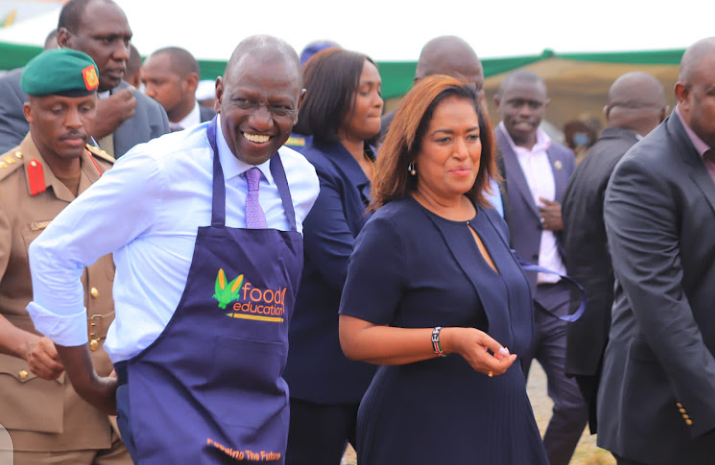Nairobi Woman Representative Esther Passaris is facing intense scrutiny amid corruption allegations linked to a women’s project under the Nairobi National Government Affirmative Action Fund (NGAAF).
The controversy centers on the Safe House project, initiated in 2022, which aims to support survivors of sexual and gender-based violence in Nairobi County.
The project has come under fire due to questionable tendering practices that suggest potential misappropriation of funds.
As the allegations mount, Passaris has made a notable political shift, expressing admiration for President William Ruto and the ruling United Democratic Alliance (UDA) party.
Critics argue that this sudden shift in political allegiance is a strategic move to evade prosecution and protect herself from the repercussions of the corruption scandal.
Passaris’s public praise for Ruto has only fueled suspicions that she is leveraging her political alignment to shield herself from the fallout of her alleged corrupt activities.
The controversy began when documents reviewed by The Standard revealed discrepancies in the tendering process for the Safe House project.
Officials have been retendering materials and works supposedly completed under Phase One for Phase Two without issuing any official addendum.
This practice raises serious concerns about double procurement and the potential for misappropriation of funds.
During a recent site visit, contractors and representatives from the Regional Works office pointed out flaws in the tendering process. However, these concerns were quickly dismissed by officials, further intensifying scrutiny on Passaris and her involvement in the project.
The Safe House project, designed to provide essential support for survivors of sexual and gender-based violence, now stands as a symbol of alleged corruption and mismanagement.
In response to these allegations, Passaris has distanced herself from the opposition Orange Democratic Movement (ODM) party.
Her newfound admiration for President Ruto and the UDA party has been interpreted by many as a calculated effort to align herself with the ruling party and avoid legal repercussions.
This political strategy, however, has not quelled the criticism. Instead, it has amplified concerns about the integrity of the tendering process and the proper use of public funds.
Passaris’s shift in political allegiance comes at a critical time when the fight against corruption remains a significant issue in Kenyan politics.
Her actions have sparked a broader debate about the intersection of politics and accountability, especially concerning projects meant to support vulnerable populations.
The allegations against her highlight the challenges of ensuring transparency and integrity in public projects, particularly those funded by the government.
As the situation unfolds, it remains to be seen whether Passaris’s political maneuvering will protect her from prosecution or if it will further entrench the perception of corruption within the Nairobi NGAAF.
The Safe House project, once a beacon of hope for survivors of violence, now faces an uncertain future amidst these allegations.
The need for accountability and transparent governance has never been more apparent, and the outcome of this controversy will likely have lasting implications for Nairobi’s political landscape and its commitment to addressing gender-based violence.





















Add Comment